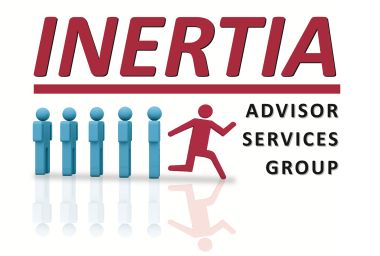Long-Term Care: The Incompatibility of Risk Management & Self-Funding
The "Silver Tsunami" will soon crest in the United States as every Baby Boomer will be at least 65 years old. With that aging demographic, Long-Term Care (LTC) Planning is becoming critically important for every American's comprehensive planning. However, consumers and the advisory community continue to employ self-funding strategies for future LTC needs – by choice or default – and there's a misconception that it's at all compatible with basic principles of Risk Management.
Given the high costs, unpredictable nature, and multi-generation impact of LTC, self-funding may be a way to pay for care, but it fails as a viable planning methodology. Lt's explores how the advisory community can help clients manage the risks associated with LTC through comprehensive planning and risk management strategies.
Understanding Long-Term Care Risks
Poor Risk Assessment: Even though data-driven planning tools like the HALO Assessment from Lumiant are available, the primary danger of self-funding is that advisors and consumers underestimate the future cost of LTC, the duration of care, or the type of care that might be required.
Health Risks: LTC is typically necessitated by chronic illnesses, disabilities, or the natural aging process. Predicting the need for LTC can be challenging, but evaluating a client's health status, family health history, and potential future health risks is essential for effective planning.
Financial Risks: The costs associated with LTC can be staggering, as the cost of various types and levels of care services can quickly drain financial resources. Clients risk depleting their savings without proper planning, leaving them vulnerable and potentially dependent on family or government assistance.
Investment Risks: Too many in the advisory community (and consumers) believe self-funding their LTC needs is viable. However, this approach often fails because poor assessment of LTC needs leads to inadequate financial resources being allocated accordingly. Other investment-related issues, including unexpected market downturns or fluctuations, healthcare cost inflation, longevity, and liquidity, can also be a concern.
Risk of Uncertainty: The reality of self-funding is that there are physical and emotional costs on a client's spouse, partner, or loved ones that cannot be accounted for, much less calculated. From caregiver stress and disruption of everyday life to guilt, anxiety, and strained relationships, these are risks that must be considered before employing a self-funding strategy for LTC.
Effective Risk Management Strategies for LTC Planning
To mitigate the risks associated with LTC and avoid the pitfalls of self-funding, advisors should adopt a comprehensive approach to LTC planning.
Risk Assessment: Advisors should begin with a thorough assessment of the client's health and financial situation, including evaluating current health status, potential future health risks, existing insurance coverage and cash values, and overall financial position.
Education and Awareness: It is crucial to educate clients about the realities of LTC, and the advisory community should provide information on the available care types, associated costs, and the financial impact of LTC needs. Understanding these factors empowers clients to make informed decisions.
Long-Term Care Insurance (LTCi): LTCi comes in many forms and can be a valuable tool for managing LTC risks. Consumers need to better understand how nearly any self-funding consideration can usually be improved with the leverage of LTCi and discounted dollars. Advisors should evaluate and select appropriate and suitable solutions or collaborate with an LTC Planning specialist who can recommend options based on health considerations, LTC Planning targets, and plan funding preferences.
Funding Strategies: Beyond insurance, advisors should explore various funding strategies to ensure clients are prepared for LTC expenses. That would include disciplined savings and strategic investments, tax-advantaged solutions such as Health Savings Accounts (HSAs), or even Reverse Mortgages. For some clients, leveraging home equity through reverse mortgages can provide necessary funds for LTC without liquidating other assets.
Estate Planning & Elder Law: Proper estate planning is essential for LTC risk management. Advisors should ensure clients have the necessary legal documents, such as wills, powers of attorney, and healthcare directives. Establishing trusts can protect assets and ensure they are used according to the client's wishes. Medicaid planning becomes crucial for clients with insufficient resources to cover extended LTC needs, and advisors should guide clients on eligibility strategies, including permissible asset transfers and spend-down strategies, to ensure compliance with state-specific rules.
Monitoring and Review: LTC planning is not a one-time task, and consumers should expect to complete regular reviews of their health, financial situation, and LTC plan. The review process allows for necessary adjustments as circumstances change and ensures staying informed about changes in LTC regulations, insurance options, or government programs.
Support Systems: Encouraging discussions with family members about LTC preferences and plans can ensure everyone is informed and supportive. Helping clients coordinate with care managers or eldercare specialists can simplify navigating LTC services.
Lifestyle Enhancement: The advisory community should promote preventive, healthy measures and wellness programs to reduce the likelihood or severity of a need for care. A healthy diet, regular exercise, and social engagement can help clients maintain health and independence in their golden years.
Effective LTC Planning requires a proactive and comprehensive approach to managing risks and avoiding potential failures of self-funding. By conducting thorough assessments, educating clients, exploring diverse funding strategies, and regularly reviewing plans, the advisory community can help clients navigate the complexities of LTC to ensure financial security and peace of mind as they age.
20250825

